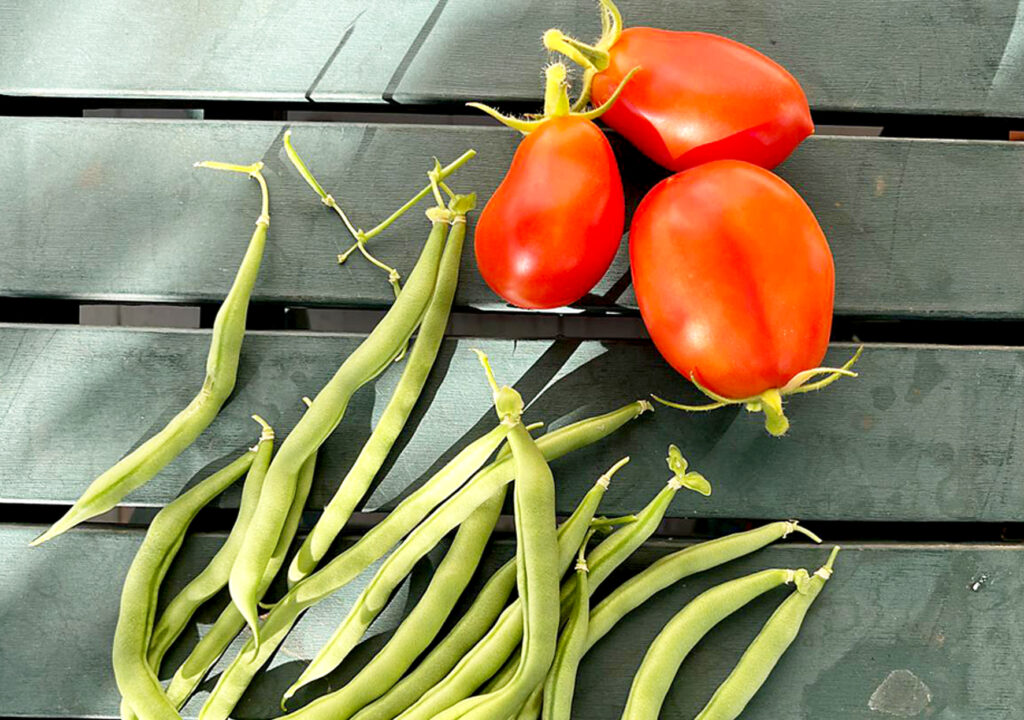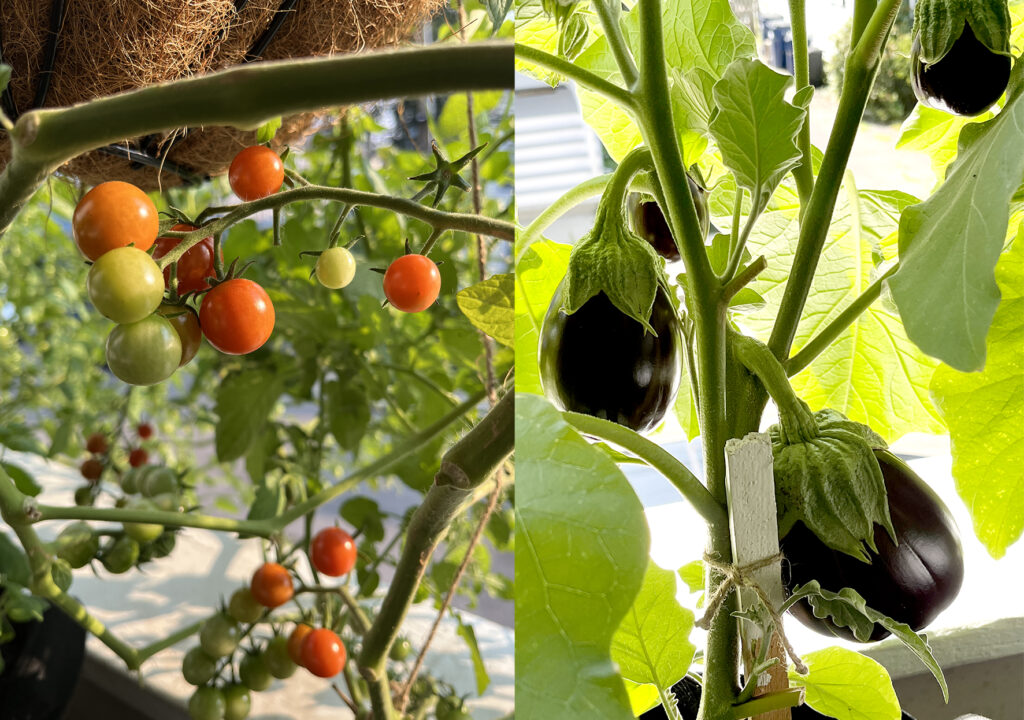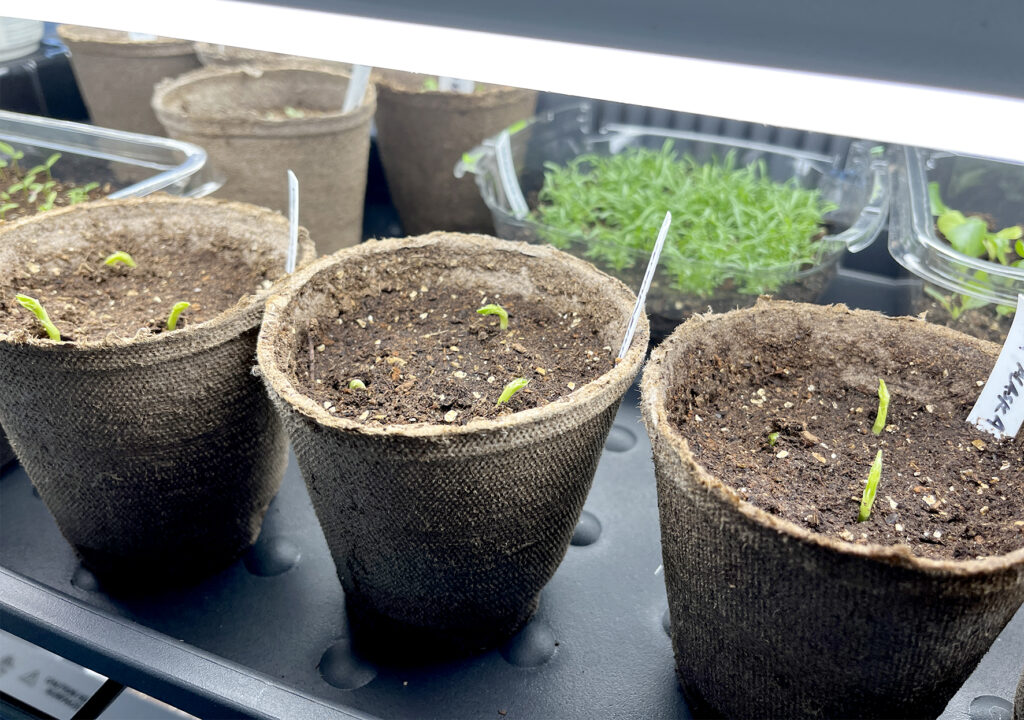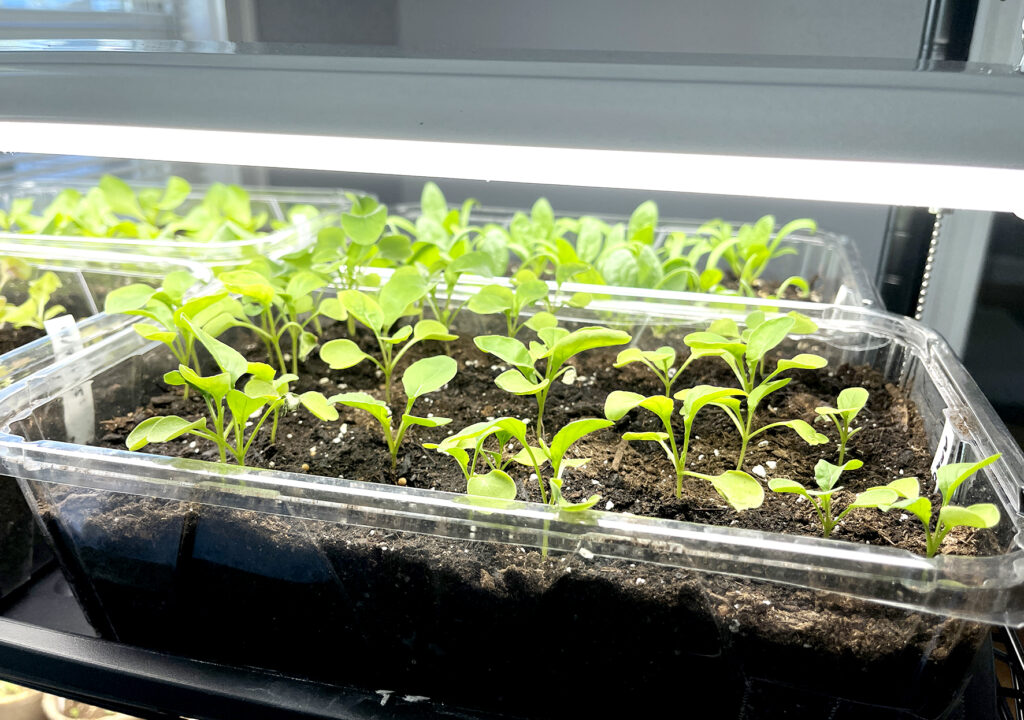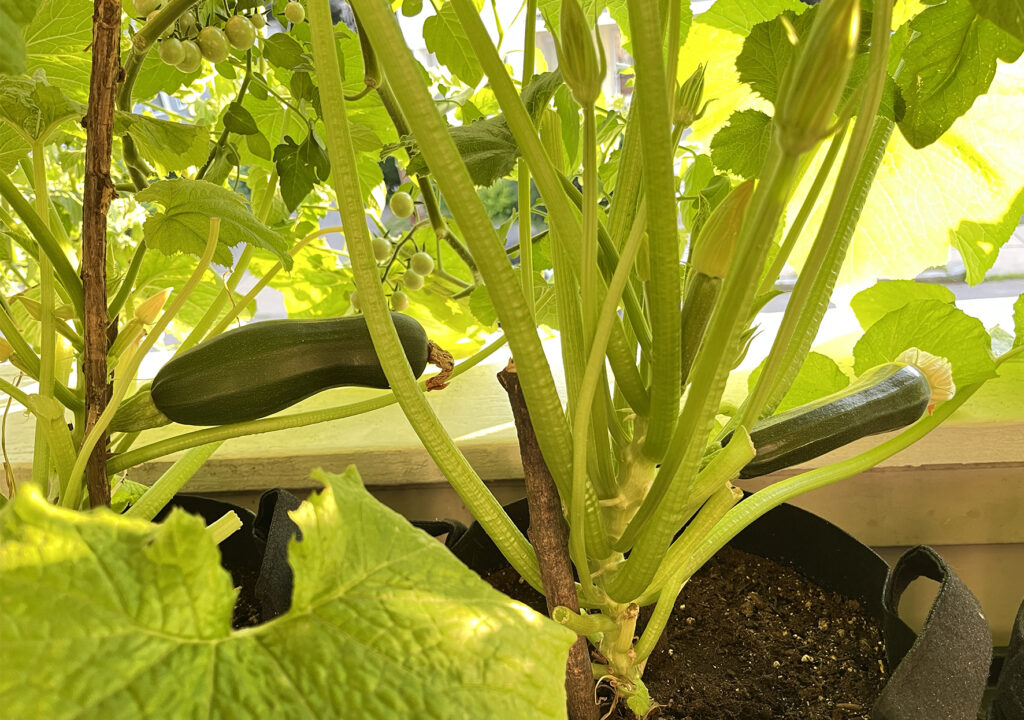Nature is powerful. Research (e.g., here and here) has shown the benefits for emotional and physical well-being resulting from living near green areas, spending time in nature, and even looking at images of nature.
Nature can also boost imagination – for instance, through gardening. This was my experience this Summer, as we explored the joys, challenges, and learnings of gardening in both our balconies. Having had previous experience gardening in our back yard, we were ambitious since day one and decided to grow from seeds several veggies (cucumbers, zucchini, eggplants, beans, peas, tomatoes, spinach), herbs, and flowers. We also wanted to be as sustainable and budget conscious as possible. Overall, the results have been amazing and the experience highly rewarding to me, despite having had more of a supporting role, than the leading one!
In addition to great harvests, to me the rewards came in the form of unexpected lessons that enriched and enhanced my imagination. The follow are seven lessons I have distilled from my gardening experience that can be applied to nurturing imaginative thinking:
- Re-framing. Gardening in the balcony (rather than in the back yard) made us have to think about the whole process of growing plants and managing space in new ways. We had to figure out where to start the seedlings (one of the many new words I learned!) and then where to transplant them (containers? bags?), how to water the plants, how to optimize the space as the plants grew bigger, etc. Like with imaginative thinking, to get better results, understanding the inner-workings, the techniques, and the basic science of gardening did help.
- Observing. Gardening increased my attention to detail. I realized that plants are excellent at communicating their “emotions,” and “needs.” For instance, if you look closely, they have a way of saying “I need water,” “I’m hot,” “It’s too cold,” or simply “I’m happy.” Actively observing the world, rather than passively seeing it, expands our knowledge and reveals what is hidden, what leads to more original ideas.
- Cultivating patience. Gardening has its own pace. You cannot rush nature! As you cannot make a plant grow faster, you are forced to slow down and shift attention to the process, rather than only the output, delaying gratification and strengthening reflection, which echoes the creative process.
- Celebrating little things. Although it may seem that the pace is slow, once you learn to notice, you realize that there is something new happening everyday. For instance, changes on the colors, textures, and sizes of the leaves, creatures that come to visit at different times, and even pollination in action. Each of these little stories evoked a sense of wonder and awe, inspiring us in new ways.
- Dealing with uncertainty. Gardening in balconies also brought unexpected challenges almost every day, that made us have to think on the spot to find solutions. Re-imagining the use of the space and the materials to maximize sunlight or protect the plants from wind and pests is just one example. Constantly having to shift perspectives and address new situations keeps neural pathways active and stimulates cognitive flexibility. Both beneficial for imaginative thinking.
- Caring for “someone.” Plants are not people or pets, but they are certainly alive. We worried when one seedling didn’t make it or a plant got sad after a storm; and got excited when we spotted a new fruit growing or a flower blossomed. This meant constant paying attention to what they needed to make sure plants stayed healthy. Do they have enough water (but not too much)? Is the wind destroying them? and so on. The act of focusing on someone (or something) else beyond yourself builds empathy and fosters mental agility, among other benefits. Being forced to step outside of our own worlds was a welcoming change of routine which helped us see new connections and bigger pictures.
- Being present. Gardening has been an excellent mindful activity which reminded me of the benefits of being fully engaged with the current moment, not in the past or in the future. A calm, present mind can lead to achieving flow state and reaching alpha waves, which activate associative thinking processes stimulating the generation of more and novel connections as well as outcomes of higher creative quality.
“Growing a Garden” is often used in positive psychology as a metaphorical activity to support inner growth and well-being through visioning and imagination. By labelling negative thought patterns, toxic relationships, and unhealthy behaviors as weeds or pests, you can identify what needs to be pulled from your “garden.” In contrast, naming the positive qualities, values, habits, relationships, and activities as plants makes it easier to identify what to nurture and focus on in your life. By gaining familiarity with gardening, you can develop a richer vocabulary for this metaphor which would also enhance your imagination to think about your life more deeply and in new ways.
In times when so much is happening in the outer world, going inwards has become a necessity to embrace imaginative thinking. Analogue activities that cultivate mindfulness, like gardening, contribute to focusing on inner discovery, deepen self-regulation, and reconnect with imagination. To maximize imagination, boosting emotional well-being and deepening inner development are the first steps.
